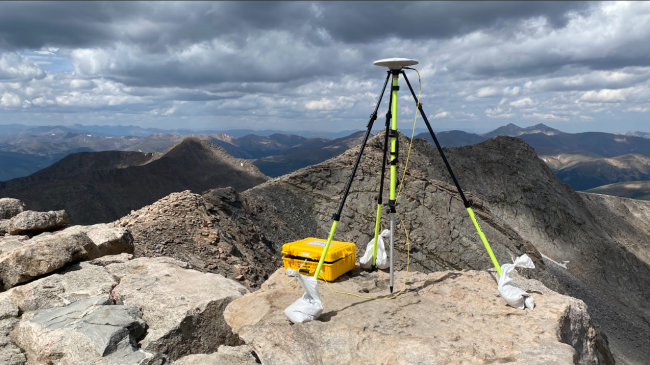Inflation Reduction Act will support NOAA’s efforts to build climate resilience

Lisa Auermuller (left) of the Jacques Cousteau National Estuarine Research Reserve demonstrates how sea level rise will affect the town of Tuckerton, N.J. and area surrounding Ivar Johnson's (right) restaurant, Panini Bay. Johnson rebuilt Panini Bay after it was damaged when the remnants of Hurricane Sandy struck the New Jersey Shore in 2012. (Image credit: NOAA)
Today, the Department of Commerce and NOAA announced $12.7 million in funding to advance the Climate-Smart Communities Initiative. This funding, which is available as part of President Biden’s Investing in America agenda under the Inflation Reduction Act — the largest climate investment in history — will bring climate adaptation expertise to communities across the U.S. over the next four years. The announcement comes as the Biden-Harris Administration hosts the first-ever White House Climate Resilience Summit.
“The Biden-Harris Administration is moving aggressively to tackle the climate crisis and help make sure communities across the country can plan effectively for increased flooding, storm surge and more frequent extreme weather events,” said Secretary of Commerce Gina Raimondo. “Today’s investment in strong resilience plans will create jobs while protecting people, communities and ecosystems from the threats of climate change.”
In 2022, the NOAA Climate Program Office solicited proposals for a U.S.-based academic, non-profit or commercial organization to manage the project. The Climate-Smart Communities Initiative will establish a public-private partnership among the NOAA-led U.S. Climate Resilience Toolkit and private sector adaptation specialists.
The funding was awarded to a consortium of climate adaptation experts led by the Climate Resilience Fund offsite link, which will co-develop equitable climate resilience plans with local governments and organizations over the next four years. When choosing communities, the initiative will prioritize FEMA’s Community Disaster Resilience Zones, which are jurisdictions that contain high risk as well as underserved populations. Resilience planning will help protect people, property, infrastructure and natural resources from climate-related hazards. Using the toolkit for adaptation planning, communities throughout the southeastern U.S. have already realized a return on investment of more than five times their cost.
The initiative aims to accelerate the pace and reduce the cost of creating inclusive and equitable climate resilience plans in communities across the U.S. The program will emphasize building resilience in under-resourced, historically marginalized communities. The goal is to develop resilience plans in communities across the nation during the next four years.
“The Climate-Smart Communities Initiative will dramatically scale up climate information and services to help communities respond to intensifying climate-related hazards,” said NOAA Administrator Rick Spinrad, Ph.D. “These equity-centered climate plans developed in communities across the U.S. will help build climate resilience.”
In this cooperative agreement, a community is defined as any municipal, county, tribal, regional or state government entity. A climate-smart community is defined as a community that has successfully evaluated climate information to prioritize potential impacts, developed a plan, identified funding and taken action to build resilience to those hazards. Together, these actions comprise the Steps to Resilience.
The Climate-Smart Communities Initiative will work inclusively with every selected community to co-produce an equitable, funding-ready resilience plan. The program will support efforts to get each plan funded or financed so that it reaches the implementation phase.
Please visit the Inflation Reduction Act website to learn about current and future funding opportunities.
Media contact
Monica Allen, monica.allen@noaa.gov, (202) 379-6693



